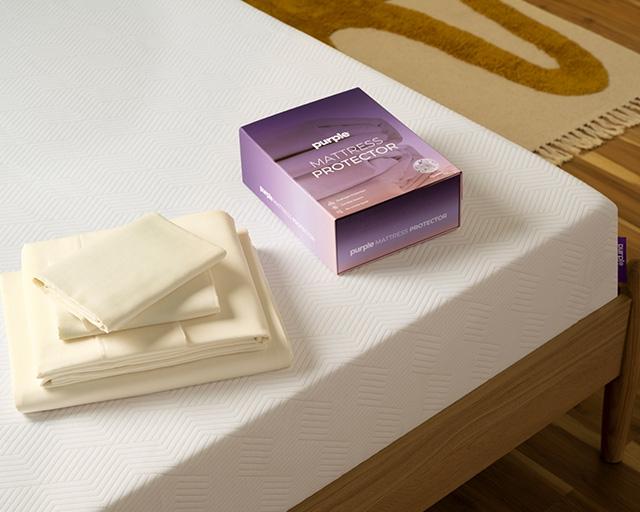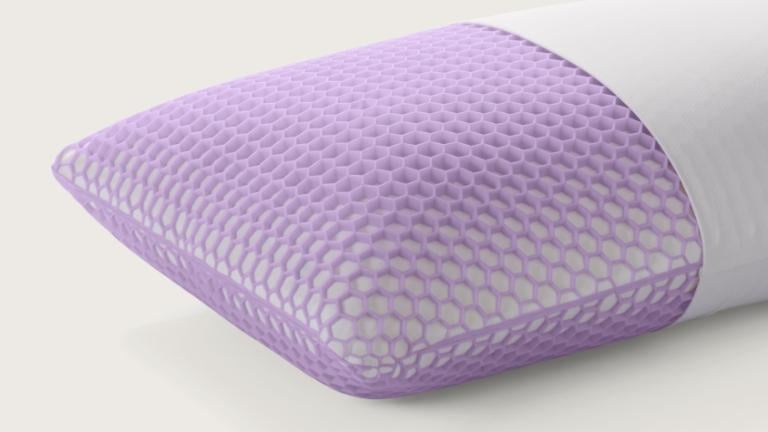Indoor Allergy Problems? Your Guide to Controlling Bedroom Allergies
Have you been sneezing a lot lately and feeling congested? Do you feel like your allergies are worse inside the bedroom than outside? If so, you're not alone. Many people suffer from indoor allergies, which can be caused by various factors such as dust mites, pet dander, or mold.
Luckily, there are ways to control bedroom allergies and improve your quality of life. This guide will teach you how to identify and reduce the triggers of your specific allergies, so you can get back to enjoying a good night's rest.
What Are Common Allergy Symptoms?
People experience allergies when their immune system views a foreign object, otherwise known as an allergen, as a harmful substance. The system overreacts, sending a type of chemical mediator called histamines, to get the body to release allergens from your system.
This is why you sneeze, cough, and itch when you experience an allergic reaction. It's your body's way of telling you that something that has come in must go out.
Allergic reactions can range from mild to severe and be triggered by all sorts of allergens. The most common symptoms of an allergic reaction include:
- Watery eyes
- Runny nose
- Nasal congestion
- Sneezing
- Itchy eyes and nose
- Rashes or hives
- Swelling, particularly around the eyes, lips, and face, as well as the tongue
- Pain and redness, especially for bites and stings
- Coughing, a scratchy throat, and a feeling of one's throat closing
What Triggers Indoor Allergy Symptoms?
Indoor allergies are allergies that are usually triggered inside the home or bedroom. For some, this type of allergy usually comes on at night, right when the person settles in for bed.
Indoor allergies usually manifest as respiratory allergies. What this means is that indoor allergy sufferers will often experience either:
- Allergic rhinitis or hay fever, which causes a stuffy nose, itching, sneezing, and watery eyes; or
- Allergic asthma, which causes sufferers to experience airway constriction.
The most common triggers for indoor allergies are:
Dust Mites
Dust mites are microscopic pests that feed on dead skin cells. They live in mattresses, bed linens, upholstered furniture, stuffed animals, carpets, and curtains, often preferring a humid environment. People with dust mite allergies are not actually allergic to the mites themselves, but to proteins found in dust mites' excretions.
Because dust mites thrive in hot and humid places, people experiencing nighttime allergy symptoms are advised to keep the humidity levels in their homes below 50 percent. This can be done with the help of a dehumidifier.
Pet Fur
People with pet allergies are allergic to the proteins found in animal dander or dead skin cells. When our pets shed, they leave their dander all over our homes, spreading it on our bedroom furniture, carpets, clothes, etc.
The most common cause of pet allergies is exposure to cats and dogs, but all animals with fur are potential sources of allergies.
Indoor Mold
Mold usually grows in dark and wet environments, like bathrooms and under the kitchen sink. But plumbing problems, a leaking AC unit, and a damaged roof can all bring moisture into unexpected places, allowing mold to grow on carpets, drywall, wallpaper, and rugs.
Cockroaches
Yes, you can be allergic to cockroaches. Like dust mites, cockroaches carry a protein that many people are allergic to. Cockroach allergies are also known to trigger asthma attacks in those with allergic asthma.
Pollen
Pollen is an airborne allergen and one of the most common causes of seasonal allergies in the United States. Although pollen is created outside, the wind can carry it towards your bedroom window. It can also stick to your hair or clothes, which you can then bring indoors.
Why Are My Allergies Worse In The Bedroom?
We spend about a third of our lives sleeping. That's hundreds of hours spent in our bedrooms. During this time, we shed millions of dead skin cells which, in turn, attract dust mites. If you have pets and let them in your bed, you also let them bring in things like dander, pollen, and even chemicals that could irritate your nose.
So, if you're allergic to some or all of the things mentioned above and spend a lot of your time in your bedroom, it's only natural that you experience bedtime or indoor allergies.
Can You Control Indoor Allergens In The Bedroom?
Yes, you can in fact control indoor allergens. The simplest solution would be to identify the main culprits and minimize your exposure as much as possible.
How To Allergy-Proof Your Bedroom
So, you want to allergy-proof your home or, at the very least, your bedroom so that you can have a good night's rest. Here are some ways you can manage your allergy symptoms without relying too heavily on allergy medications:
1. Invest in a Hypoallergenic Mattress
While there are many different mattress types, people with allergies will want to get one that is hypoallergenic. This six-syllable word indicates that a mattress is safe for people with allergies. Pollen, dust, bed bugs, and those microscopic, crab-like creatures called dust mites are mostly prevented from entering the mattress because of its material — whether it’s synthetic memory foam, latex foam, or even a coil mattress encased in a naturally allergen-resistant material like cotton.
Additionally, a hypoallergenic mattress — like the PurpleFlex™ Mattress — might have a specific foam structure that facilitates airflow, keeping the interior of the mattress nice and dry, which in turn prevents mold, fungi, and bacteria from taking root and colonizing the space under which you sleep.
It’s important to keep in mind that some other companies will tout their mattresses as hypoallergenic — yet their allergy-resistant nature comes from a dangerous makeup of America’s most wanted chemicals. Over time, those compounds (like chemical fire retardants) can cause rashes, sore throats, watery eyes, and difficulty breathing — the very things you were hoping to avoid. To that end, you’ll want to make sure your hypoallergenic mattress is also non-toxic. Purple's mattresses are made of polyurethane foam, a safe mattress material that is low in VOCs, has no harmful CFCs, and has been emissions-, performance-, and durability-tested.
2. Use Hypoallergenic Bedding
Some bedding materials are better at keeping allergens like dust, mold, and dander at bay. Hypoallergenic bedding is designed to have a tighter weave, which keeps tiny particles from getting through the fabric and into your mattress.
Cotton, bamboo, and Tencel fabric (made from tree pulp) are all excellent options, as is silk — though that particular sleeping surface comes with a hefty price tag and requires dry-cleaning (not the best for those with allergic sensitivities to chemicals in cleaning agents). Bamboo and cotton sheets are great options as they have a natural feel and are an inherently more repellent material — good for resisting mites and pollen alike.
Some mattresses are also made specifically to have low to no VOC contents. VOCs are volatile organic compounds that can trigger allergies in some people.
3. Cover Your Bed With a Mattress Protector
Anyone with allergies should use a mattress protector. While hypoallergenic mattresses and pillows keep the majority of culprits out, some will still get in. As you toss and turn in bed, you’ll jostle the big happy dust family around, which can trigger all the allergic reactions you want to avoid.
If you’re allergic to latex, make sure your mattress cover is not made from it, otherwise, it won’t be very good at helping you avoid allergic reactions. People who are extremely sensitive to memory foam and latex mattresses can look for a mattress protector with a pore size of 1 micron. It’s effective at blocking allergens but be aware that the lack of airflow will likely create extra heat and diminish the comfort of your mattress.
A mattress cover — like the Purple™ Mattress Protector — can help prevent you from breathing in dust, spores, or other unwanted materials. A mattress cover will further help prevent these allergens from getting into the mattress in the first place. Also, your mattress and pillows become a gravity-aided sponge of body oils and strange fluids (we won’t get into details). Having your mattress wrapped in a solid cover will prevent moisture from getting into the mattress, which in turn prevents allergy-inducing molds, fungi, and bacteria from brewing. Even better, mattress protectors will prolong the life of your bedding by keeping your mattress clean, as these fluids can wear down its effectiveness over time.
4. Change Your Pillows, Beddings, and Mattresses On A Regular Basis
Did you know that you shed 500 million dead skin cells a day? That's a lot of food for dust mites, and a lot of it gets stuck on your beddings. As a rule of thumb, you should wash your sheets at least once a week.
It's also important to replace your sheets, pillows, and mattress every few years. You should replace your pillows every one to two years, but the actual number varies based on the pillow material. Mattresses should be replaced every six to eight years.
5. Don't Let Your Pets Into Your Bedroom
Some people with pet allergies can tolerate having pets around, but we advise anyone allergic to pet dander to try and minimize their exposure to their pets as much as possible. This means keeping the bedroom a pet-free zone.
6. Invest In A Good Vacuum
Vacuuming one to two times a week can reduce the number of allergens in your home, but it isn't enough to just vacuum regularly. You need to invest in a good-quality vacuum that won't spread dust in the air.
7. Tidy Up
Aside from vacuuming regularly, it's also important to reduce clutter in your home. Less clutter means you'll have fewer things to dust and wipe down when you're cleaning up.
8. Shower And Wash Before Bed
When we step outside, millions of tiny particles of dust, dirt, pollen, and fur can latch onto our clothes, hair, and shoes. Before you hit the hay, make sure you're clean and free of any dirt and debris.
9. Invest In An Air Purifier
Air cleaning devices like an air purifier, air filter, or dehumidifier can improve your air quality and reduce humidity at home.
There are many different types of air purifiers, each with its own specialty, so make sure to do your research before making a purchase. HEPA filters and ion filters work best for filtering out dust, pollen, and dander, while carbon filters are better for deodorizing rooms.
10. Avoid Smoking Indoors
While cigarette smoke isn't considered an allergen, it can irritate the nasal passages and the lungs. Even if you don't smoke, second-hand smoke can do substantial damage to your health. If you or someone you live with continues to smoke, make sure to do it in a place with good ventilation.
What Is the Best Hypoallergenic Mattress?
Seventy-four percent of allergy sufferers have said that allergies have woken them up at night. Indoor allergies are more than just a nuisance — they can be detrimental to our overall health. As much as possible, you should work to remove all sources of allergy triggers in your home.
If any allergens do make their way to the bed, they’ll be stopped cold in their tracks by a hypoallergenic mattress protector. Bamboo bed sheets will prevent them from taking hold where you sleep.
Purple mattresses are hypoallergenic and will keep allergens out. Its patented Hyper-Elastic Polymer™ Grid will keep air circulating, further preventing allergens from lingering if they do get past the Great Wall of Purple. It’s important to consider your options among the types of mattresses that are hypoallergenic and pick one that also offers sleepers a restful night of sweet dreams.
If you don’t believe how amazingly effective these mattresses are for battling allergens, read some mattress reviews from customers who are breathing easy at night. Allergy sufferers will suffer no more, and you can finally get a good night’s sleep.
More To Explore
Level up your sleep routine with our most-loved products.



